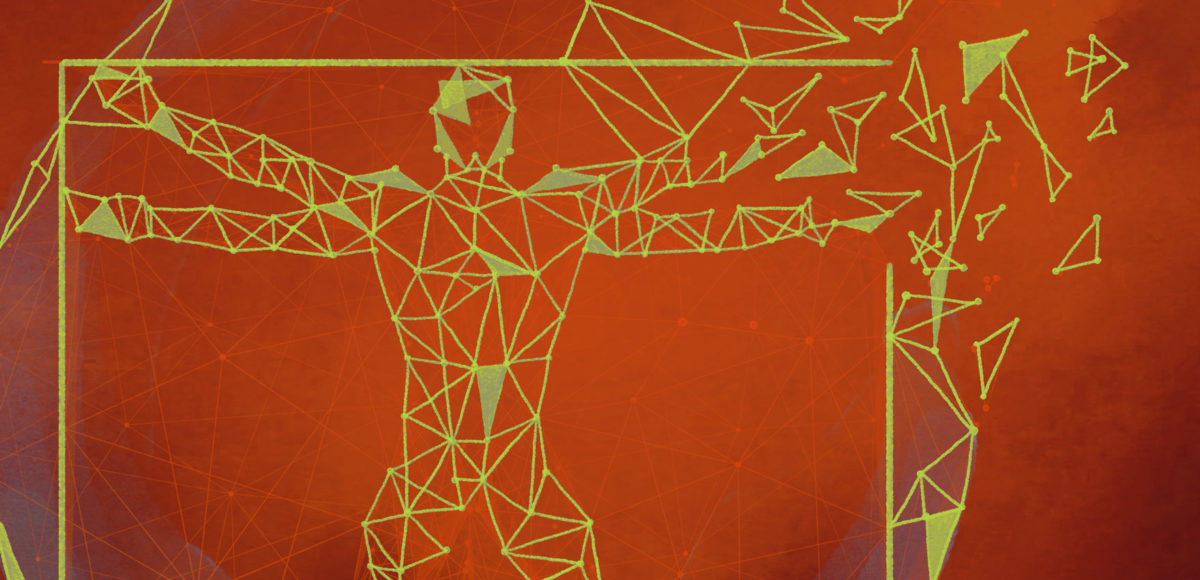On October 2, 2019, Conditio Humana warmly invited guests to discuss topics related to artificial intelligence, democracy, and ethics and network with other individuals with an interest in the field. For this special event, attendees met at Factory Berlin.
Alexander Görlach, editor-in-chief of Conditio Humana, presented a keynote regarding technology’s rate of change and its effects on citizens regarding cybersecurity, identity, and the future of work. In his keynote, he addressed the components of what makes a liberal democracy and how human rights are born out of the concept of human dignity, as well as how this relates to current conversations regarding artificial intelligence and ethics.
We are witnessing a global, breathtaking acceleration of technological progress. While computerization initially began in specific domains, today the digital sphere has expanded to shape and transform our everyday lives. More than ever, questions such as, “Who owns our data?” and “How transparent do privately-owned social media corporations have to be?” are becoming important to voters and democracies alike, as we enter an unknown digital landscape that requires new laws and governance.
With digitization transforming nearly every aspect of life in the 21st century, how can we make sure our democracies keep up? Especially regarding recent technological creations in China, such as the social credit system and citizen monitoring, how does this reflect upon our democracies and what we make of human rights? The Chinese government has pulled its citizens out of poverty in merely a generations’ time and thus, many of its people feel loyalty towards it. Though many Chinese citizens report that they approve of the social credit system because it helps maintain social order, people outside of China criticize the system for limiting freedoms, potential harm against minority groups, and a fundamental breach of human dignity and privacy.
However, this credit system is merely one example of technological-fueled surveillance and China is not alone. Companies such as Facebook, Amazon, Google and Twitter already have massive amounts of data on each of its users and routinely use this data for machine learning and the development of complex behavior prediction algorithms.
Democracies are facing new challenges and new topics of debate thanks to changing technologies. A rise in automation is also making it possible for some manual jobs to be entirely human-free. What this means in terms of how we define ourselves based on our work, and the potential for universal basic income is yet to be seen by liberal democracies.
The question of how we base citizenship is also a topic that in the global age has been re-opened. In the future, should we continue basing citizenship, the right to vote, and the rights that come with it based upon birthplace, residence, or the country in which one interacts within the public sphere? Even more forward-thinking, will the concept of citizenship become obsolete as the globe continues to flatten as technology becomes more uniformly dispersed?
Couldn’t make it to the event? Here are just some of the key takeaways from Alexander Görlach’s keynote.
- “There is no such thing as an illiberal democracy. In an illiberal democracy, a majority alone defines its causes.”
- “Opponents of liberal democracy will say that leadership should be given by nature.”
- “Liberal democracies acknowledge minority groups.”
- “A liberal democracy is one that engages people on a topic…the public sphere is defined by equal engagement.”
- “We have accepted the notion of what we call today human dignity. Out of this human dignity, we have human rights. This is all derived from the notion that we could meet in the public sphere of equality.”
- “If you have the right to vote, but you are still hungry, the right to vote doesn’t mean that much to you.”
A very special thanks to everyone who attended the event.
Follow our Twitter to learn more about upcoming events and news.

 | Technology, AI and ethics.
| Technology, AI and ethics.

